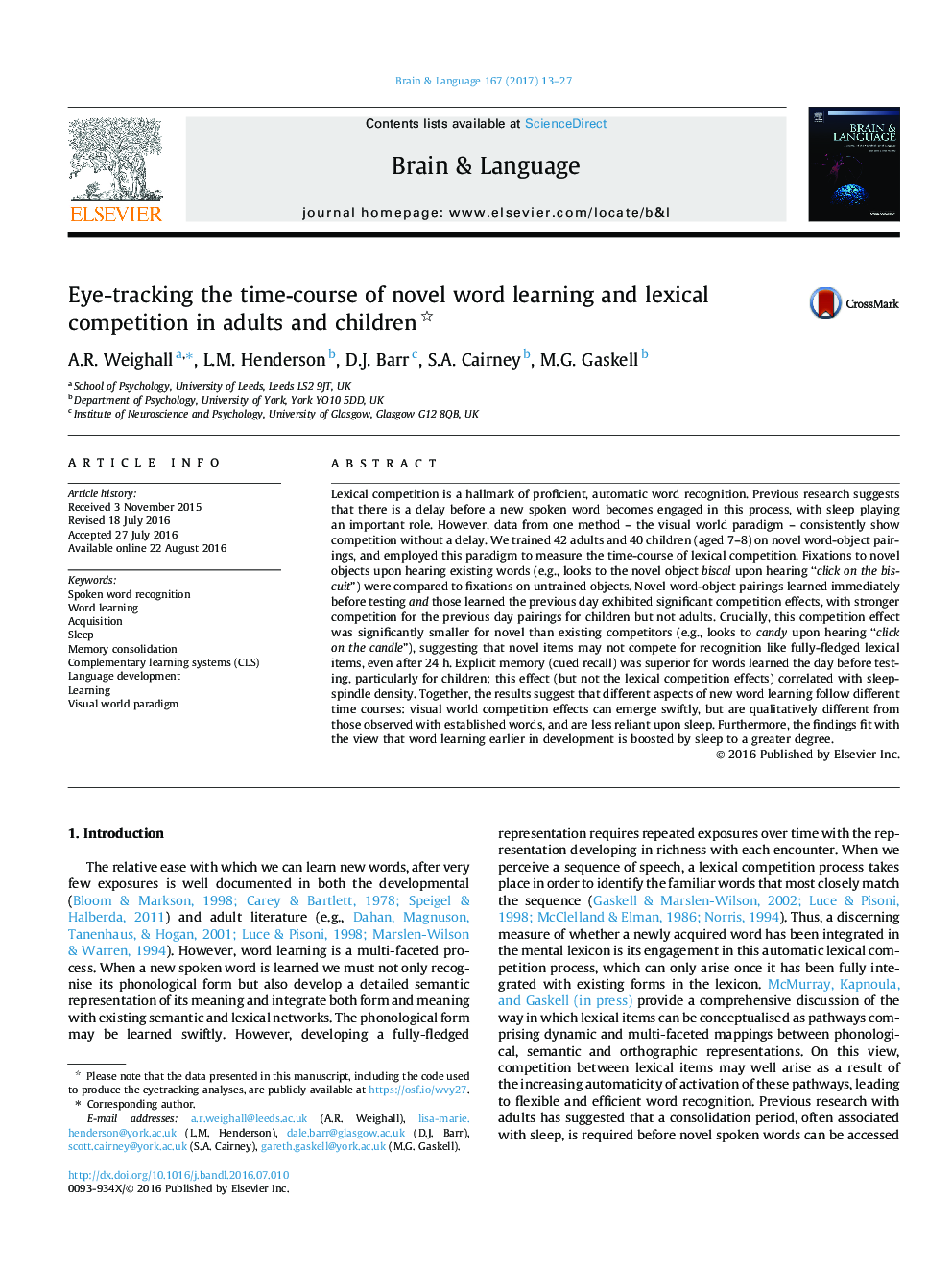| کد مقاله | کد نشریه | سال انتشار | مقاله انگلیسی | نسخه تمام متن |
|---|---|---|---|---|
| 5041373 | 1474017 | 2017 | 15 صفحه PDF | دانلود رایگان |

- Newly learned spoken words can compete for recognition soon after learning.
- Lexical competition effects were smaller for newly learned than existing words.
- Explicit memory was superior for words learned the day before testing.
- The sleep advantage for explicit memory correlated with sleep-spindle density.
- Word learning seems boosted by sleep to a greater degree in children than adults.
Lexical competition is a hallmark of proficient, automatic word recognition. Previous research suggests that there is a delay before a new spoken word becomes engaged in this process, with sleep playing an important role. However, data from one method - the visual world paradigm - consistently show competition without a delay. We trained 42 adults and 40 children (aged 7-8) on novel word-object pairings, and employed this paradigm to measure the time-course of lexical competition. Fixations to novel objects upon hearing existing words (e.g., looks to the novel object biscal upon hearing “click on the biscuit”) were compared to fixations on untrained objects. Novel word-object pairings learned immediately before testing and those learned the previous day exhibited significant competition effects, with stronger competition for the previous day pairings for children but not adults. Crucially, this competition effect was significantly smaller for novel than existing competitors (e.g., looks to candy upon hearing “click on the candle”), suggesting that novel items may not compete for recognition like fully-fledged lexical items, even after 24Â h. Explicit memory (cued recall) was superior for words learned the day before testing, particularly for children; this effect (but not the lexical competition effects) correlated with sleep-spindle density. Together, the results suggest that different aspects of new word learning follow different time courses: visual world competition effects can emerge swiftly, but are qualitatively different from those observed with established words, and are less reliant upon sleep. Furthermore, the findings fit with the view that word learning earlier in development is boosted by sleep to a greater degree.
Journal: Brain and Language - Volume 167, April 2017, Pages 13-27